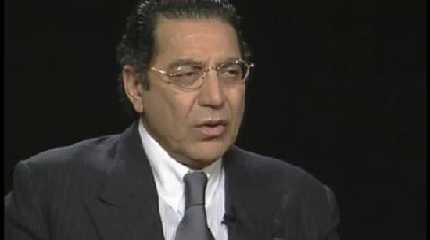
UNITED NATIONS, Jan 27 (APP):Pakistan, which firmly opposes more permanent members in the U.N. Security Council, has called for ensuring equitable representation on the 15-member body by adding more elected member to make it more democratic and effective.
“A regional approach which ensures ‘equitable geographical representation’ should be the central proposition around which agreement can be developed on the size, categories, and other aspects of Security Council reform,” Ambassador Munir Akram told delegates when the deadlocked Inter-Governmental Negotiations (IGN) aimed at restructuring the Council resumed on Thursday.
In this regard, the Pakistani envoy underscored the need for flexibility to achieve the required consensus among all UN member states to overcome the stalemate in the reform negotiations.
“Effective and meaningful reform can be achieved … only through the widest possible agreement of Member States i.e. consensus,” he said.
While there were deficits in Security Council’s ability to fulfill its principal responsibilities, Ambassador Akram said that adding to the ranks of the “privileged” (permanent members) in the Council was unlikely to offer answers to those deficits of the collective security architecture.
“The reform of the Security Council must redress these deficits … by enhancing the Council’s representativeness, accountability, transparency and democracy,” he said.
Full-scale negotiations to reform the Security Council began in the General Assembly in February 2009 on five key areas — the categories of membership, the question of veto, regional representation, size of an enlarged Security Council, and working methods of the council and its relationship with the General Assembly.
Progress towards restructuring the Security Council remains blocked as G-4 countries — India, Brazil, Germany and Japan — continue pushing for permanent seats in the Council, while the Italy/Pakistan-led Uniting for Consensus (UfC) group opposes any additional permanent members.
As a compromise, UfC has proposed a new category of members — not permanent members — with longer duration in terms and a possibility to get re-elected.
The Security Council is currently composed of five permanent members — Britain, China, France, Russia and the United States — and 10 non-permanent members elected to two-year terms.
“The UfC’s compromise proposals for longer-term seats, with the prospects of re-election, could provide the pathway to reconciling the positions of all sides – including the G-4,” Ambassador Akram said.
The presence of more elected Members could enhance the representation and influence of the entire UN members vis-à-vis the oligopoly of the five permanent members of the Security Council, the Pakistani envoy said.
“The creation of permanent seats for a few countries is the worst option for everyone else,” he said, as it will deny opportunities for more frequent periodic election to 182 mostly smaller, member states which are not accorded this ‘permanent’ status and violating the principle of sovereign equality as well as the principles of equitable representation and equitable geopolitical distribution.
“It will also make the Council even more unequal between permanent and non-permanent members and also more unaccountable.”
“Accountability is a critical component of Security Council membership since the Council ‘acts on behalf of the general membership’,” the Pakistani envoy said. “A State occupying a seat ‘permanently’ is not accountable.’
The reason for the slow pace of progress in the IGN process was not procedural, he said. “Progress towards consensus has been blocked by the inflexible position adopted by a few member states who insist on acquiring privileged positions as new ‘permanent members’ of the Security Council.”




